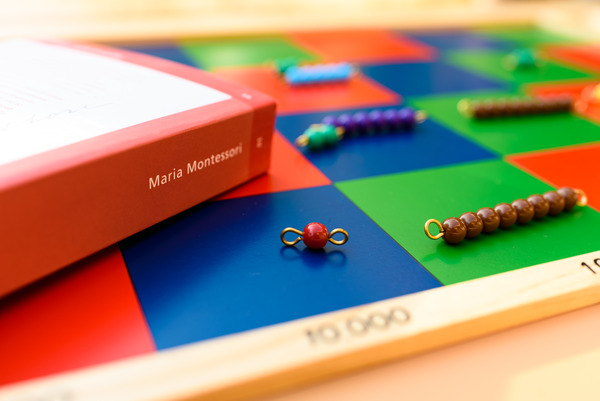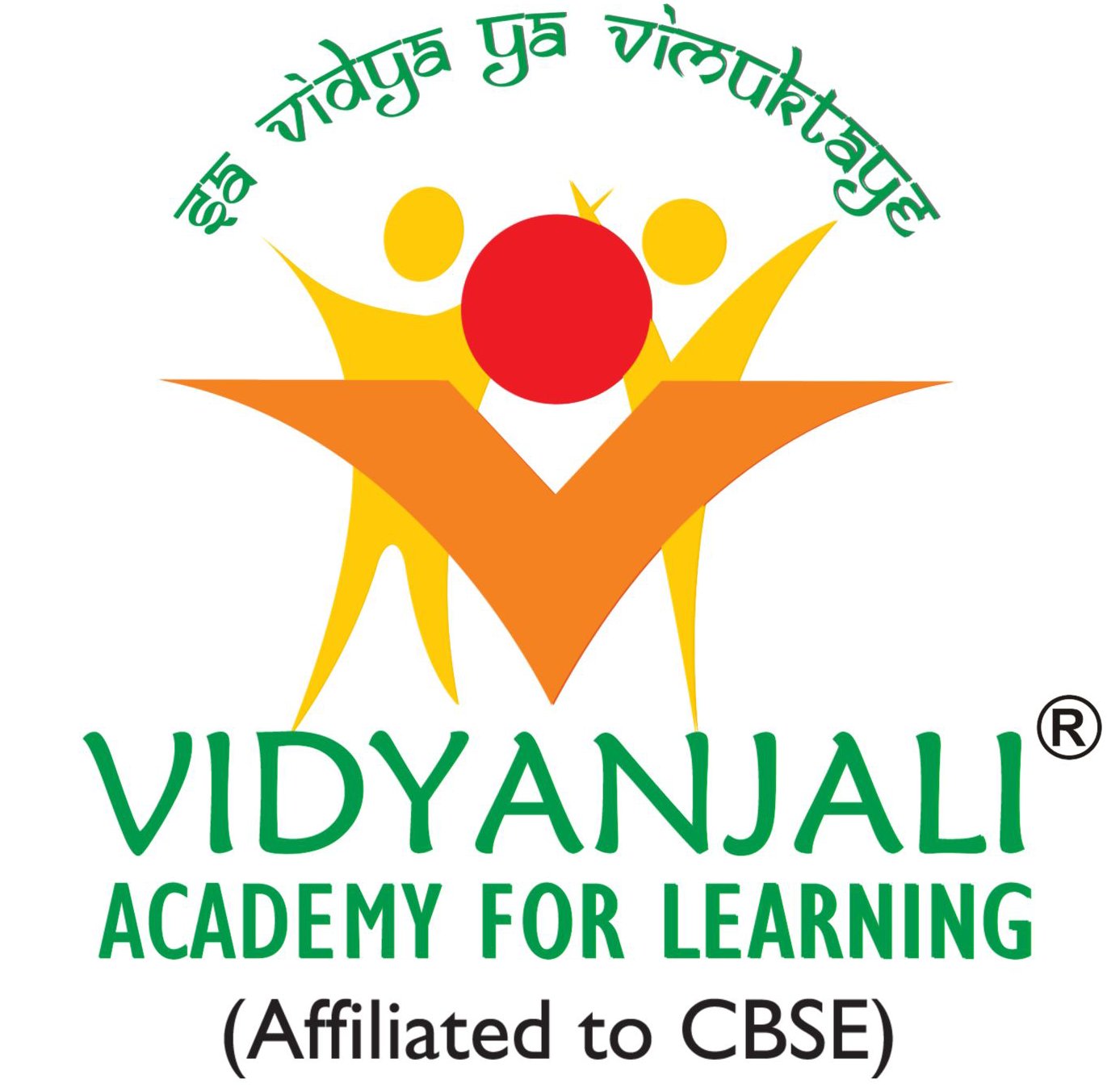
About thirty two years ago, in 1992, Sri Ramaiah Reddy
Educational Trust laid the foundation for Vidyanjali Academy. This school was
founded to provide holistic learning, which will profoundly affect many
students' lives! Vidyanjali Academy is an innovative school that believes in
the mental growth and development of students through a holistic mode of
education. Its guiding principle is to provide each child with an education
that is truly specific to their age needs and developmental stage.
Effective learning outcomes depend on how well we
understand the curriculum based on age groups. By implementing a
developmentally appropriate curriculum, students will be supported to grow
socially, emotionally and cognitively for life-long learning and personal
growth. Vidyanjali Academy promotes a stimulating learning environment, wherein,
the potential of every child is harnessed through a structured and interactive
curriculum.
Overview of Montessori Education
Montessori education is
a unique educational approach, that aids children's skill
development. Here is a detailed overview
of Montessori education.
What Is Montessori Education?
Montessori education is
self-directed and student-lead, but it is supported, evaluated and enhanced by
competent and compassionate teachers, peer leadership, and a supportive
environment. Every student pursues their curiosity at their own pace, taking
the necessary time to grasp each idea completely and
accomplish their unique learning objectives. Montessori students develop into
self-assured, enthusiastic, and self-directed learners.
History And Principles of Montessori Education
In 1907, Dr. Maria Montessori opened the Casa De Bambini in Rome, where a child-centred education system for the first time evolved. Her system provided individually paced learning at the rate of the child's development and stimulated independent and cooperative learning. Again, by 1909, Montessori's work brought international attention to the book by establishing Montessori schools worldwide. Though much criticism was made in the United States at the beginning of the 20th century, Dr. Nancy McCormick Rambusch revived it in 1958. Through her work - involving the establishment of the Whitby School and the American Montessori Society - interest in the Montessori Approach was revived and has since then seen its wide application and modern influence on education.
The following are the four guiding principles of Montessori education:
● Liberty of
Choice
Children in Montessori programs have far more freedom than
those in traditional classrooms to choose what to work on, when to work on it,
who to work on it with, and other factors.
● Direction
Montessori classrooms are highly organized
physically (in terms of layout) and conceptually (regarding how the use of
materials progresses).
● Materials
Through hands-on experiences and instructional materials,
children in Montessori programs learn better and faster. Their learning is
embedded in the context of actions and objects because they are actively
participating in the process instead of just listening and writing.
● Guidance
Montessori teachers set high standards and yet respond to
children's needs with empathy. The aim of this kind of "authoritative
parenting" is to apply the child-centered approach of other progressive
schools.
Benefits Of Montessori Education for Children
There are several advantages to setting up your child in a Montessori environment. Here are some of them listed below:
●
Valued as unique individuals: Montessori
education considers that kids learn in various ways and offers lessons that
work with all of them. Each student has an individualized
learning plan that helps him or her learn at his or her own pace. The teacher
guides the students as they move forward.
●
Development: Montessori helps kids learn
order, focus, and freedom from a young age. For toddlers to teens, the
way the classroom is set up, the tools used, and the daily routines help
students develop their "self-regulation," meaning they can learn
independently and think about what they are learning.
●
Joyful Learning: Students are encouraged
to actively seek out information. Teachers ensure that their students are free
to find answers to their own questions and give them the tools they need. A
child's natural wonder and interest are sparked by what makes them happy. This
leads to joyful learning that lasts a lifetime.
●
Developing Social and Mental Skills: A
new study backs up the effectiveness of the 100-year-old Montessori Method,
showing that kids who learn in Montessori classrooms have better social and
emotional skills than kids who learn in more traditional classrooms.
Montessori Curriculum Breakdown by Age Group
Unlike traditional
methods that take a one-size-fits-all approach, the Montessori curriculum is
designed to adjust to the needs and pace of each child, making learning more
personalized and successfully maintaining engagement. A breakdown of the curriculum by age group is
provided here.
Here is an overview of the Montessori School
curriculum of children infants up to 3 years:
Educational Goals: Foster basic motor coordination,
independence, early language skills, and sensory development.
Learning activities and
materials used:
●
Toys that excite the hearing
and sight
●
Safe, soft things to hold and
move around
●
Simple, fun songs and books
that you can interact with to help kids learn language
●
Improving motor skills by doing
real-life tasks like pouring and moving around.
Focus areas: Emphasize physical and psychological growth, basic motor skills, and early language acquisition.
2. Early Childhood
(3-6 years)
Here is an overview of the Montessori School
curriculum of children 3 - 6 years:
● Strengthening prior
knowledge, taking on increasingly difficult assignments, and introducing
academic principles.
● Classrooms cover
practical life skills, sensory-based learning, basic language and math academic
work, the basics of geography, history, botany and zoology, music, art, and
movement.
● The typical daily
routine starts with a morning school prayer, followed by learning activity,
meal break of 1 hour followed by outdoor play.
3. Lower
Elementary (6-9 years)
Here is an overview of the Montessori School curriculum of children 6 - 9 years
●
Curriculum focus: Developing concrete
knowledge to introduce abstract thinking and comprehending the logic behind
taught concepts.
●
Subject breakdown: Include courses like
language, arts, mathematics, science, history, and geography to improve
reasoning skills, broaden global knowledge, and promote comprehension of
cultural and scientific ideas.
●
Extracurricular activities: Other than
homework, children are involved in many other activities like music, art, and
physical education. Field trips allow them to learn by participating and become
aware of the community.
4. Upper Elementary (9-12 years)
Here is an overview of the Montessori School curriculum of children 9 - 12 years:
●
Curriculum topics: Developing a deeper
comprehension of difficult subjects and making connections between various
fields of knowledge.
● Educational Objectives: Develop project management
abilities, foster ethical reasoning, and strengthen intellectual independence.
● Environment: Encourages sophisticated projects requiring critical
thought and advanced academic exploration.
5. Adolescence (12
- 15 years)
Here is an overview of the Montessori School curriculum of children 12-15 years:
●
Focus: As
students grow in awareness of their unique identities and social roles, there
will be a shift in their emotional and social development.
●
Environment:
Consists of real-world applications and community involvement, such as managing
a small company or planning volunteer work.
●
Educational Objectives: Encourage
community service, personal growth, and the application of classroom learning
to real-world circumstances.
Unique Aspects of Vidyanjali Academy’s Montessori Curriculum
One thing that makes Vidyanjali different is that our goal is not just to make top students who know their stuff and do well on tests. Instead, we are focused on teaching life skills to the kids from a very young age, so they can become responsible members of the country and help make it better for everyone.
Some of the main goals of the life skills training classes we run
are to help people get over their fears, become more self-confident, develop
empathy, creative thinking, teamwork, problem-solving skills, and ways to deal
with stress and emotions. Vidyanjali Academy teaches many life skills, such as
equal rights for men and women, overcoming fear and shyness, negotiating, and
respecting older people.
Testimonials
1. Paes Family
“When we sought a nearby school for our kids, Vidyanjali Academy for Learning exceeded our expectations. Vidyanjali Academy offers more than education—it provides a foundation of values and principles to help children grow into well-rounded individuals.”
“Our two kids attend Vidyanjali Academy for
Learning to further their education. We were impressed by the Montessori
method's consideration of a child's entire life, not just their academic
pursuits when we first learned about it. When we visited Vidyanjali, we saw
that the school's loving, caring culture matched our child's emotions and that
our kids felt right at home.
Through various tie-ups and
collaborations with businesses and organizations like CBSE, Vidyanjali Academy
engages in activities to make learning more enjoyable. Some of these activities
involve community service projects and joint events that get everyone together
to make our students feel more a part of their surroundings. Such efforts
improve learning and give everybody a support network that helps.”
Final Thoughts
The ability to adapt lessons based on each child's developmental
stage makes Montessori education laden with independence, critical thought, and
a love of learning that carries well into adulthood. The Vidyanjali Academy
does this very well, with a caring and active setting adapted to the needs of
each student. They believe in personalized learning. So that,
every kid reaches his potential and learns skills needed in life. Schedule a
tour or contact our admissions team today, to learn how our unique Montessori
method can help your child learn. Learn more about how Vidyanjali
Academy can help your child by visiting the website!
Frequently Asked Questions
How do Montessori teachers assess student progress?
A Montessori teacher
keeps a close eye on the children in the classroom. The teacher is able to
monitor each student's academic progress because of the low student to teacher
ratio. The instructor will monitor your student's progress and offer assistance
or criticism as required.
What materials and resources are used in Montessori classrooms?
The materials are made to be both elegant and simple, with an
emphasis on the senses. They are often constructed from organic materials like
cloth, metal, or wood, and they are intended to fulfill the requirements of
various developmental stages in children.
How does Vidyanjali Academy support students with special needs?
Vidyanjali Academy has qualified Special Educators to
help students with special needs. A certified Special Educator
from Vidyanjali watches the kids in the classroom and if required, offers
assistance, either one-on-one or with the teacher and parents' assistance.
How do parents get involved
in their child's Montessori education at Vidyanjali Academy?
Parents are asked to participate in workshops for various classes
and share their skills. Parent
Empowerment programs are offered to the parents of a variety of classes
to support and understand the development and learning of their children.
How does the Montessori approach foster independence in children?
Independence is a continuous, natural process in a Montessori
classroom. A child gains confidence and independence that will benefit them
throughout their life, when they learn how to pour water,
put on their own shoes, and clean their own workspace.
What are the expected outcomes for students at different stages of the Montessori curriculum?
Younger children gain competence and confidence through completing
everyday tasks. The children in the preschool and older programs ought to be
able to handle the different materials purposefully, which will help them
comprehend more.



